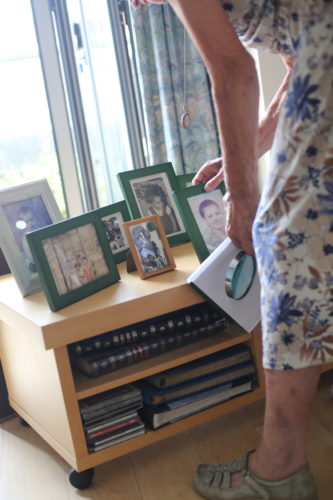Professor Wendy Savage, member of the Medical Ethics Committee (BMA MEC, Tavistock Square), is an outspoken advocate for women’s choice and health care rights. We sit side by side in her Clerkenwell apartment, surrounded by blue-green prints of wild landscapes. Wendy looks out through the windows while talking, as if finding worrying statistics and complicated scenes in the shifting skyline.
Wendy (b. 1935) accepted the teaching that terminating pregnancy was ‘wrong,’ when training as an obstetrician many years prior to the Abortion Act of 1967. Then she moved to Kenya in the 1960s, where every three months she saw someone die from a backstreet abortion. In Nigeria, she lost her beloved house-keeper, Anastasia, to ‘native medicine.’

She got involved in activism in the late 1970s after returning to the UK. ‘There was no way you could make up your mind, it depended on the woman,’ she reflects. The only time she wavers from the principle of women’s choice is caesarian sections – she feels people are not adequately informed of the side effects. Wendy trod a controversial path in the ‘70s and ‘80s by opposing the medicalisation of childbirth. Wendy practices what she preaches – all four of her children were vaginal deliveries, no fuss. She was performing surgeries and ward rounds, even in the first stages of labour for child number three!
In the 1990s, Wendy was part of a campaign to save the Elizabeth Garrett Anderson hospital (services by and for women on Euston Road) from demolition. Together with others, she ensured there is a permanent exhibition exploring the life and times of E.G.A. in the building – now the Unison offices.
As a medical ethicist, Wendy talks here about her attempt to get decriminalisation of abortion on the agenda of the MEC, why sex selective abortion is not a significant problem in the UK, and her own experiences with childbirth. We also discuss the ‘Keep OUR NHS public’ campaign (KONP), which launched from Wendy’s own flat. The pressure group meets at the Unite offices close to King’s Cross, with 50 local branches around the UK. KONP aims to bring back public ownership of the NHS, to end cuts and expose creeping privatisation plans.
Story by Laura Mitchison
